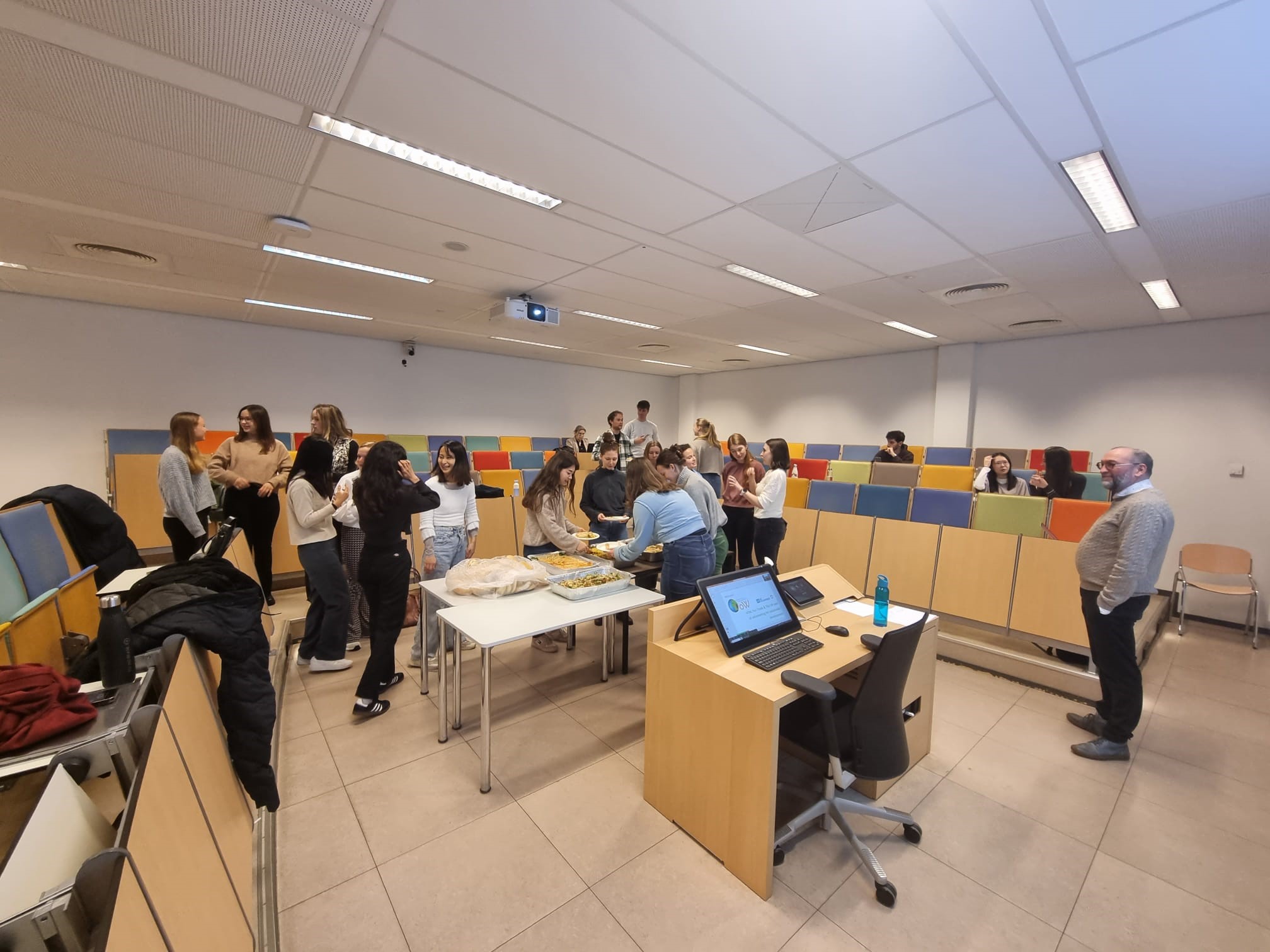Multiplier event at RSM
The VoW project has completed its second project result. This consists of an expansive set of e-learnings on various volunteer management and sustainability topics. Ranging from welcoming and retaining volunteers, communication and even a self-developed “fair-trade” fresk game volunteers can use to quickly become acquainted with the Fair-Trade principles. It also contains a report on pathways for adopting validation of competencies within the Fair-Trade- and similar movements. Validation is a new topic for the Fair-Trade movement but may be very relevant for certain groups of (new) volunteers, such as newcomers seeking to improve their language skills. Throughout the runtime of R2, the consortium performed trainings and tests to hone this material. The lessons from these sessions are contained within the main R2 report as well.
Recently, Rotterdam School of Management disseminated the results amongst a group of young (student) volunteers.
During the event, students were made aware of the project and its results but were also educated about a – to them – relatively unknown volunteering reality: that of charity retail and the issues they face. Many organisations struggle to find new (young) volunteers and commit a new generation to the sustainability and SDG potential of (Fair-Trade) volunteering. Students were confronted with various types of charity shops and asked their opinion about volunteering there. Some expressed they found shop volunteering to be too far removed from the ultimate impact to sound fulfilling. The bigger the distance to the cause, the less attractive a volunteering activity may sound. Interestingly, about half of the group was interested in shop volunteering. None of them were more interested in “movement” volunteering when it concerned Fair Trade, but when asked in general terms (any store, and any cause) about half was more interested in movement volunteering. Finally, on the topic of competency development and validation, only a few participants said to specifically choose volunteering for competency development, and none said to find the validation/certification of their competencies in a volunteer context interesting. Of course, this doesn’t mean students generally feel this way, maybe a different set of students or students at another, non-university, level think otherwise. This shows how, at least, volunteer involving organizations need to be wary of committing to offering validation to younger volunteers, based on the assumption that their lack of credentials means they appreciate having volunteer competencies validated.

Recording of the event hosted at the Erasmus University
